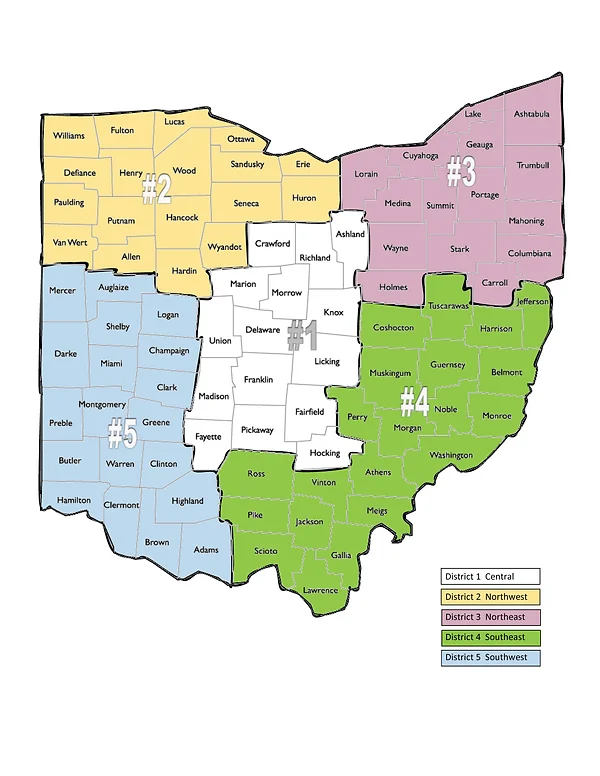Our Story
Since January 22, 1973, a lot has changed scientifically, politically, and culturally in the pro-life movement. It is time that we embrace a governance model and a strategy for victory designed for the 21st Century.
In recent years it has become increasingly clear that the pro-life community in Ohio needs a firm un-compromising voice to champion the Right to Life movement.
This is a new day, and the realities are such that we need to take the initiative to push the envelope and raise our expectations of what’s possible.
Imagine an America where, like slavery which is forever banned, we will see the abolition of abortion in our lifetime.
Imagine an America where once again, the inalienable right to life extends to all, born and unborn.
RTLACO’s THREE CORE PRINCIPLES
1. We are dedicated to building an authentic grassroots organization. Our coalition will foster and encourage direct member input and representation at every stage.
2. We believe that a statewide organization should work to empower its local Pro-life member organizations to maximize their impact in the communities they serve and to assist them in developing the next generation of Pro-life leaders.
3. We are convinced that a statewide association should reflect the consensus views of its member organizations.

FAQ
For a downloadable PDF of these FAQs, click HERE.
A The Right to Life Action Coalition of Ohio is an association of prolife organizations which collaborate on advocacy for the right to life in law and public policy. We engage at the federal, state, and local levels. We are officially a 501(c)(4) organization, i.e., we are recognized as a non-profit but donations to us are not tax-deductible to the donor.
A RTLACO currently has about 28 member organizations throughout the state of Ohio. Some of our more prominent members are:
- Right to Life of Greater Cincinnati
- Cleveland Right to Life
- Dayton Right to Life Society
- Greater Toledo Right to Life
- Created Equal
- Mission America
A Member organizations retain complete autonomy over their policies, finances, and programs. RTLACO is managed by a board of directors whose members are provided by our member organizations. RTLACO typically takes the lead on engagement with Ohio and federal public officials and advocacy for or against proposed laws and policies. Our members include both 501(c)(3) and 501(c)(4) organizations.
A RTLACO consists of a board of directors (currently 17 members), from which a six-person executive committee manages day-to-day affairs. We are an entirely voluntary organization – we have no paid staff and no permanent office space. Our board members and other volunteers work from their homes and/or the member organizations with which they are affiliated.
A We have three primary functions:
- Identifying and endorsing prolife candidates for elective office.
- Engaging with legislators to enact prolife laws.
- Engaging with relevant executive branch agencies (e.g., the Ohio Department of Health) to monitor enforcement of existing laws and policies.
A Candidates must truly earn our endorsement, both by their prior record and through the completion of a comprehensive survey. They must be in fundamental agreement with our RTLACO policy document- found HERE .
We do not endorse candidates simply because of their party affiliation and we do not feel obligated to endorse a candidate in every race. In short, we have great confidence that those candidates who do receive our endorsement are firmly committed to the protection of human life from conception to natural death.
A – No, that is the benefit of a coalition. As independent organizations, our members can support, or not support, any specific bill or policy. However, because our members helped to set our legislative agenda and actively influenced the final consensus position, they can respect the process even though they may not fully agree with the RTLACO final position. Obviously, we do not expect members to be opposing our endorsed position.
A Like other non-profits, the bulk of our revenue comes from donations from individuals and organizations, to include in-kind contributions. We also receive annual dues from our member organizations, which are nominal.
RTLACO was formed in 2017 largely from prolife organizations which were formerly chapters of Ohio Right to Life, who wanted to pursue a more aggressive strategy of advocacy. Although there is no formal relationship between RTLACO and ORTL, we are happy to work with any other right to life organization and we recognize the importance of unity and consensus among prolife groups if we expect to achieve our right to life goals. Some of our member organizations remain chapters of Ohio Right to Life and some are not.
A The Dobbs decision held as follows: “The Constitution does not confer a right to abortion; Roe and Casey are overruled; and the authority to regulate abortion is returned to the people and their elected representatives.” Thus, in the absence of any federal law governing abortion, Ohio law now solely determines the legality and availability of abortion. This places a new importance on the Ohio court system, in particular the Ohio Supreme Court. While the legislature has recently passed – and the governor signed – a number of prolife bills, most of them remain stalled in the courts. The most notable of these is the so-called Heartbeat Law (SB 23). Even with favorable court rulings on these laws, the optimal solution to banning abortion in Ohio is a constitutional amendment.
In The News

Friday Five
South Carolina House Passes Abortion Ban with Rape Exception. Babies Conceived in Rape Less Human? By a vote of 67- 35, the South Carolina House of Representatives passed a bill that purports to ban abortion. On Wednesday, the House voted down a more principled abortion ban that would have also protected the right to life

Bad News
At the end of 2020, the Ohio Legislature passed two pro-life pieces of legislation that were ultimately signed into Law by Governor Dewine. Senate Bill 27, the bill to ensure the Humane and proper Disposition of the Remains of an Unborn Baby killed by abortion, SB27 was the culmination of 2+ years of work by

Good News
On Wednesday, Dec 22nd, Governor DeWine signed into law Senate Bill 157. This new law now requires medical care for babies that survive abortions. Essentially it prevents infanticide in statewide abortion facilities. Failure to do so, could result in felony charges for the abortionist/doctor. The law also requires the reporting of these born alive cases
